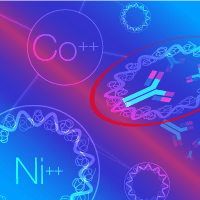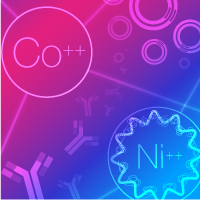Tagged protein purification overview
Why tag a protein?
The simplest methods available for characterizing a protein are often antibody-based. Antibodies can be used for measuring protein abundance and turnover, determining the cellular location of a protein, detecting post-translational modifications, and identifying interactions with other proteins. However, antibodies are not available for many proteins and are unsuitable for certain types of studies, such as tracking protein trafficking within living cells and tissues.
Protein tagging provides a powerful alternative to antibodies and can be used in living systems. It involves cloning a gene of interest in-frame with a protein tag that will be expressed as a fusion with the resulting protein—and that allows the protein to be captured or detected. A wide variety of protein tags are available, including his- (polyhistidine), GST-, and Myc-tags.
Applications
Most protein tags can be used for protein purification, and nearly all of them are suitable for protein detection using such techniques as Western blotting, ELISAs, immunohistochemistry, immunocytochemistry, measurement of fluorescence intensity, and ChIP-Seq. Certain tags have proven useful for solving challenging protein expression problems, e.g., by making it possible to express proteins that have lethal effects on host cells or protecting expressed proteins from proteolytic degradation (Li 2011). In addition, some tags may be used to help localize a target protein to a specific cellular compartment, or, as in the case of GST tags, to increase protein solubility.
Protein tags are most frequently used to purify proteins for which no protein-specific antibody exists. Such tags include his (polyhistidine), GST, and Myc tags, which are fused to proteins of interest using expression vector systems. Tag-specific capture reagents such as affinity resins or antibody-linked beads are available to purify proteins expressing these tags.
References
Li, Y. Recombinant production of antimicrobial peptides in Escherichia coli: A review. Protein Expr. Purif. 80, 260–267 (2011).
Takara Bio USA, Inc.
United States/Canada: +1.800.662.2566 • Asia Pacific: +1.650.919.7300 • Europe: +33.(0)1.3904.6880 • Japan: +81.(0)77.565.6999
FOR RESEARCH USE ONLY. NOT FOR USE IN DIAGNOSTIC PROCEDURES. © 2025 Takara Bio Inc. All Rights Reserved. All trademarks are the property of Takara Bio Inc. or its affiliate(s) in the U.S. and/or other countries or their respective owners. Certain trademarks may not be registered in all jurisdictions. Additional product, intellectual property, and restricted use information is available at takarabio.com.





